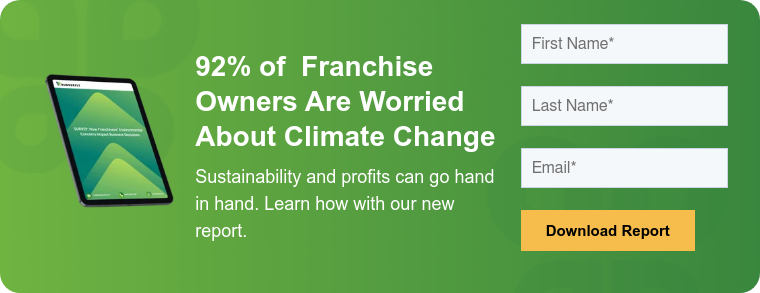
10 English Idioms That Could Use a Green Energy Upgrade
The world is changing rapidly. To combat carbon emissions, more is being invested in energy-efficient technology, green energy sources like wind and solar, and electric vehicles are becoming increasingly common. Now, with the Inflation Reduction Act signed into law, we can expect these changes to accelerate.
But one thing that’s not changing so fast is our language. In a recent meeting here at Budderfly, one employee said they wanted to “step on the gas” for a project they were working on. This idiom struck us somewhat funny: at a company where we work to help businesses reduce their carbon footprint with energy efficient upgrades and solar, it felt a bit off to use a term that calls to mind burning fossil fuels!
We thought about other common turns of phrase that could use a green-energy upgrade. Below are a few suggestions. Maybe some of them will catch on, maybe not! But just as we help businesses get greener, we thought we’d lend the English language a hand as well. Hopefully, if we can be a little more aware of the way we speak, we can also be conscious of our behaviors and actions. Words can have a big impact.
Step on the gas. Want things to move along a bit faster? Maybe you can tell people to put their foot on the electricity, or use another phrase we already say: put the pedal to the metal. Electric cars actually accelerate faster than vehicles with traditional fuel engines, so updating this one is a no-brainer.
Lightbulb going off. The next time you have an idea, you can clarify that you’ve had an LED go off. LEDs last longer than traditional lightbulbs, so it’s probably best for when you have a really strong idea.
Adding fuel to the fire. This phrase can call to mind coal, which despite the recent EPA ruling by the Supreme Court, is being phased out for cleaner alternatives. So maybe when something is being exacerbated, we should say “shining some light on the roof.” Though solar panels work even on cloudy days, they get the most done at times when the sun is out.
Beef up. Want to make something you’re working on a bit more substantial? Beef is a top contributor to greenhouse gas emissions, which is why more restaurants like McDonalds, Burger King, and more are offering meat-free versions of their classic dishes. So maybe we should start saying “soy up”?
Burning the midnight oil or burning candle at both ends. When someone is working hard, especially late into the night, we often say they are “burning the midnight oil” or “burning the candle at both ends.” Neither of these phrases feel very energy efficient. Here’s an idea for a new term: “using lunar energy.”
Gas up. This more recent slang means to fuel someone’s confidence with over-the-top praise and compliments. Of course, we’re all for helping lift up people’s sense of self-worth, but perhaps we could say we’re “blowing on their turbines.” It might be a better analogy anyway: Wind turbines collect the wind’s kinetic energy as wind flows over the blades creating lift which causes the blades to turn. Just like compliments lift someone’s spirit...makes you think!
Pull the plug. When you want to put an end to something, you might say you’re “pulling the plug.” Now, we like this one because unplugging something when not in use can help it use less energy. But with modern technology, you don’t always need to pull a physical plug to conserve energy, you can sometimes just remotely turn something off. We think “cut off the power source” could be an apt new idiom.
Break the ice. This phrase, which refers to when you’re first getting to know someone, originates from “ice-breaker” ships that had strengthened hulls and powerful engines that could literally break ice as people explored polar regions. Now, with polar ice melting at alarming rates, we might not want to break up the ice so often. A new way to describe getting over that first awkwardness could be simply to “break ground” or “tear down the wall.”
Run out of steam. This phrase originates from steam engines and how they gradually slow and stop when the fire that powers the boiler is too low to produce steam. Steam engines historically have been powered by coal, which is also why they’re no longer as popular. Luckily this phrase is easy to tweak: when you’re getting tired you can just say you’ve “run out of battery” or charge.
My way or the highway. Even though EVs are becoming a popular way to reduce emissions, there are even greener ways to travel, like public transit. Perhaps we should put our foot down in an argument with a new phrase: “my way or the subway.” Or if you don’t live somewhere with trains? “My way or the bike lane.”
Look, we know these are all a bit silly, and we won’t judge you if you don’t adapt the way you speak to be this hyper-vigilant. But it’s interesting to see how years of certain energy practices have shaped the idiomatic expressions of our language. It’s not a stretch to imagine that in 100 years these terms might evolve or become obsolete.
Whether or not they do, we’re much more concerned that our actual energy use evolves. Using less energy is a crucial way to help the planet and lower emissions, as is opting for more green energy sources. Want to learn how Budderfly is helping over 3,000 business across the U.S. reduce their energy use and carbon footprint? Check out our about page.

.
